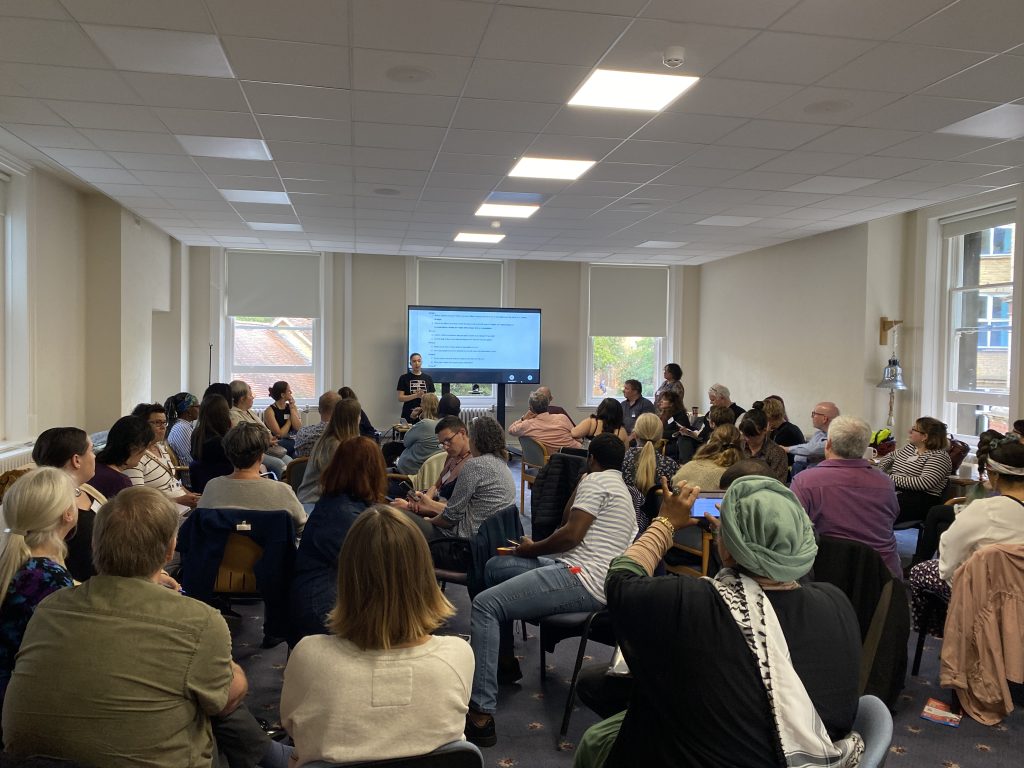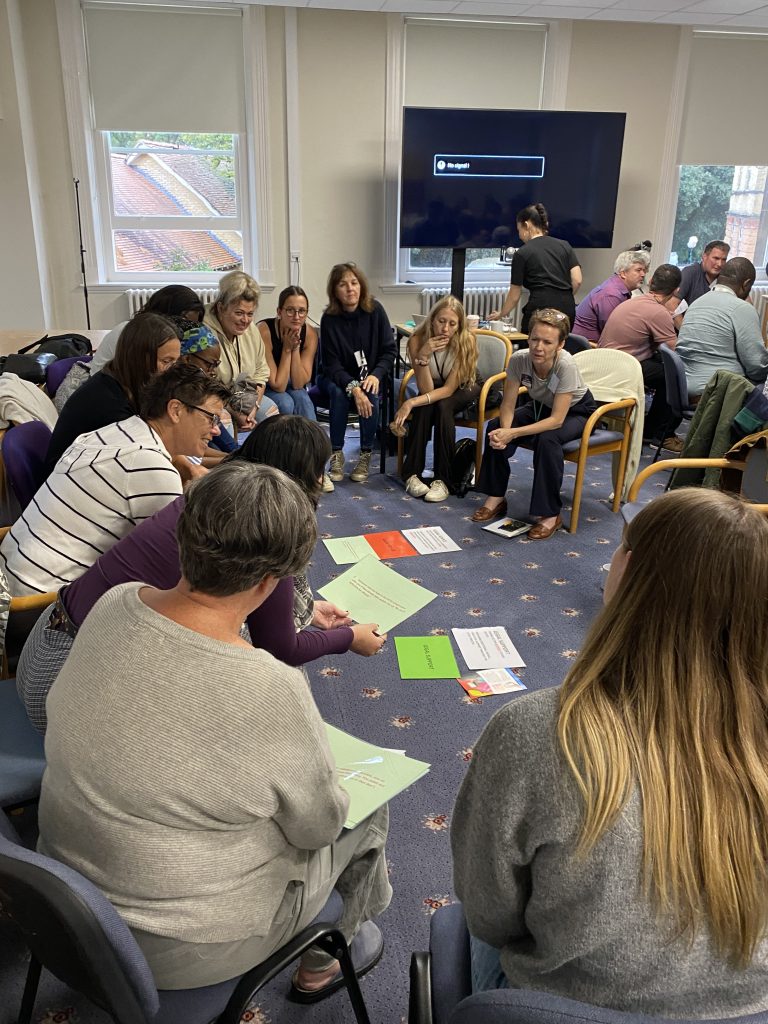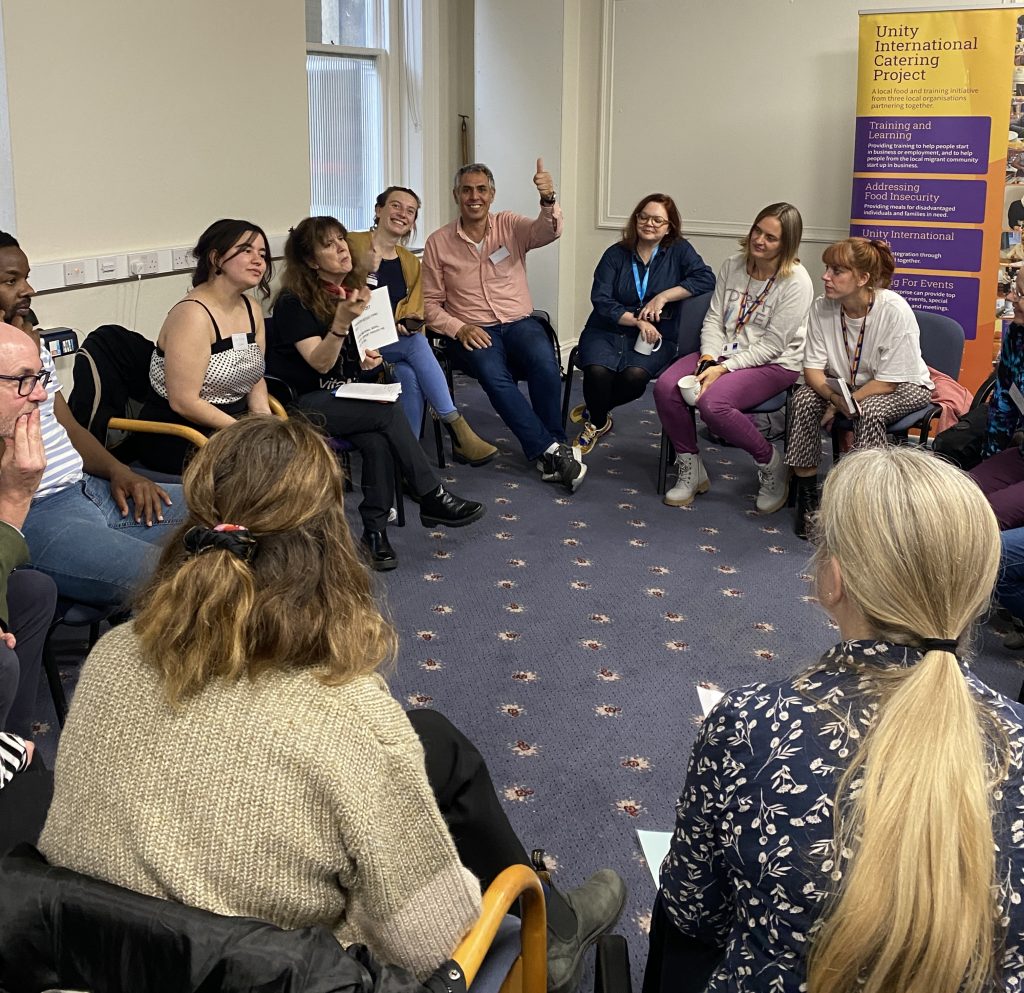Background
As new Home Office accommodation sites are springing up across the UK, there is a need for legal education in new regions. At Right to Remain, we have begun the process of mapping these sites, to understand what support services already exist, and where further support is needed.
This project led our Engagement and Operations Officer, Esther, to start identifying organisations and groups in Bournemouth, and more widely Dorset, in response to the Bibby Stockholm. By coincidence, (as fate would have it), she was approached by Beatriz Brooks, Commissioned Lay Pioneer for North Bournemouth and Poole at St Aldhelm’s church, a key actor in the migration justice movement in this region since the 1990s, who was interested in learning more about our Toolkit workshops.
Dorset is a known legal advice desert, meaning an area where there is little legal advice available (amidst the more general legal aid crisis in the UK). Although many of the people seeking asylum are being moved onto the barge currently have legal representation, this is likely to change as the capacity increases.
Bournemouth is the closest town with access to legal advice, and so support agencies here are likely to see an increase in people trying to access their services, both from those who have been dispersed, and the additional 500 people housed on the Bibby. Therefore it is important that people working to support migrants and people seeking asylum have the support and knowledge they need, but also are working together in solidarity with their communities.
Fast forward to 12 October, where 50+ people from across the Bournemouth, Poole and Christchurch region, and additionally Portland, joined Right to Remain for what is undoubtedly one of the most passionate and energetic Toolkit workshops to date.
What did the workshop cover?
The activities were met with drive and enthusiasm – many questions were asked, which spurred healthy debate among participants, particularly during the exercise on the difference between legal advice and legal support. The general mood of the day was upbeat, positive, and full of drive to create real and lasting change within the asylum and immigration system.
A highlight of the workshop was the closing panel, consisting of Beatriz Brooks, Commissioned Lay Pioneer for North Bournemouth and Poole at St Aldhelm’s church, who also started the ‘Give Us a Voice’ project, Rebecca Fell, CEO at International Care Network (ICN), and Craig Anderson, part of the resettlement team at BCP Council. The diversity of experience was notable, and made for a valuable discussion on the asylum and immigration system in this region.
ICN have over twenty years of experience supporting refugees and asylum seekers in Bournemouth, with their predominant current challenge is managing the disparity between the support of resettlement cases, which are government recognised schemes, and asylum cases, which don’t qualify for the same entitlements. Rebecca explained that the government creates a situation that makes some people’s lives more difficult, and ICN does not have the resources to match the need.
As a Senior Housing Practitioner in the Resettlement Team for Bournemouth, Christchurch and Poole Council, Craig works hard to prevent homelessness for migrants, both on schemes such as Homes for Ukraine and the Afghan Resettlement Scheme, and asylum hotels and dispersal accommodation. The local authority must meet statutory duties, however they are struggling with the Home Office’s new seven day eviction policy, which is leaving hundreds of newly granted refugees without anywhere to live. This is an issue many are currently facing across the UK.
Beatriz, who has been active in the migration justice sector for over 25 years, is driven by her desire to help communities, and in particular the migrant community, saying “I imagine the life of the people I help and what they’re destined to do. I see value in people”.
The biggest challenge for her is the deeply negative narrative around migration, including the right-wing rhetoric which has a polarising effect. This scapegoating rhetoric can make it hard to feel like you are making a difference.
Beatriz’s solution? “Radical solidarity. There is no us and them, we need to have a human to human connection and work together. Events like this keep us going, and make us realise we absolutely need each other”.
What’s next?
As the day came to a close, emphasis was laid on what lay ahead for this community in BCP, with Beatriz asking the attendees “what will we take away from this?”. I caught up with her after the workshop, where she said
“The Right to Remain workshop held on October 12 exceeded all my expectations. In Dorset we face a major dilemma, there is simply no legal advice locally that can meet the needs of the 700+ asylum seekers in BCP and Portland (over 500). The inability to provide legal advice to asylum seekers causes much frustration, not only to us, but also to those we wish to help, who are in dire need of legal representation. It is no exaggeration to say that this situation is life or death in many cases. It may be easier to forget about the problem and do nothing about it.
However, receiving this training gives us the opportunity to face this dilemma with the confidence that positive results will be obtained. The quality of the material is excellent, up-to-date and easily digestible thanks to Yumna, who has great skill, knowledge and charisma. But, this is only the beginning, we need to continue to devise strategies that will make it possible to transfer this understanding of how to legally support the asylees to those who will be the recipients.”
The commitment to ensure the learning didn’t start and end with the workshop was inspiring, and reaffirmed why our workshops are so important. If you would like to request a workshop for your organisation, please use the form below.
















Discussion: